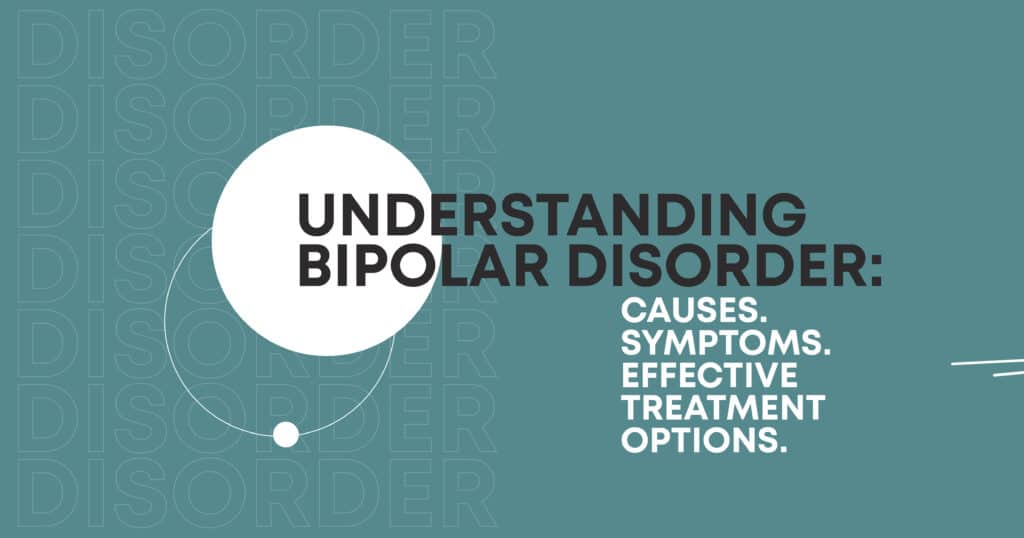Living with bipolar disorder can be a difficult journey, both for the individuals grappling with its effects and for their loved ones. This mental health condition is marked by severe mood swings, encompassing episodes of mania and depression. In this comprehensive guide, we’ll delve into the causes, symptoms, and treatment options for bipolar disorder, shedding light on this complex mental health issue. Additionally, we’ll explore how the Mental Health Center of San Diego offers personalized and effective mental health treatment for individuals navigating the nuances of bipolar disorder.
What is Bipolar Disorder?
Bipolar disorder is a mental health condition characterized by extreme fluctuations in mood, energy, and activity levels. Individuals with bipolar disorder experience episodes of mania, where they feel overly energetic, euphoric, or irritable, and episodes of depression, marked by deep sadness, lethargy, and a sense of hopelessness.
Bipolar Disorder Symptoms
Recognizing the symptoms of bipolar disorder is crucial for early intervention and effective management. Common symptoms include:
- Mood Swings: Unpredictable shifts between manic and depressive states.
- Manic Episodes: Elevated mood, increased energy, impulsivity, and decreased need for sleep.
- Depressive Episodes: Persistent sadness, fatigue, changes in sleep patterns, and feelings of worthlessness.
- Mixed Episodes: Simultaneous occurrence of manic and depressive symptoms, leading to heightened emotional turmoil.
Signs of Bipolar Disorder
Identifying the signs of bipolar disorder is essential for seeking professional help and initiating the appropriate treatment. Look out for the following signs:
- Extreme Mood Changes: Rapid and intense shifts in mood that affect daily functioning.
- Impulsive Behavior: Engaging in risky behaviors without considering consequences.
- Changes in Sleep Patterns: Drastic alterations in sleep duration and quality.
- Difficulty Concentrating: Impaired focus and concentration during mood episodes.
Causes of Bipolar Disorder
The origins of bipolar disorder are multifaceted, involving a combination of genetic, biological, and environmental factors.
- Genetic Factors
- Family History: Individuals with a family history of bipolar disorder are at a higher risk.
- Genetic Markers: Specific genes may contribute to susceptibility.
- Biological Factors
- Neurotransmitter Imbalance: Fluctuations in neurotransmitters like dopamine and serotonin.
- Brain Structure: Anomalies in the structure and function of certain brain areas.
- Environmental Triggers
- Stressful Life Events: Traumatic experiences or major life changes can trigger episodes.
- Substance Abuse: Drug or alcohol abuse can heighten or trigger bipolar symptoms.
- Bipolar Treatment Options
Effectively managing bipolar disorder requires a comprehensive plan that may include medication, psychotherapy, and lifestyle adjustments.
- Medication
- Mood Stabilizers: Lithium and anticonvulsant medications help stabilize mood swings.
- Antipsychotics: Manage symptoms during manic and mixed episodes.
- Antidepressants: Sometimes prescribed cautiously to address depressive symptoms.
- Psychotherapy
- Cognitive-Behavioral Therapy (CBT): Helps identify and change negative thought patterns.
- Interpersonal and Social Rhythm Therapy (IPSRT): Focuses on regulating daily routines.
- Lifestyle Adjustments
- Regular Sleep Patterns: Consistent sleep can help stabilize mood.
- Stress Management: Techniques such as mindfulness and relaxation exercises.
- Substance Avoidance: Minimizing alcohol and drug use to prevent exacerbation of symptoms.
Mental Health Treatment at Mental Health Center of San Diego
At the Mental Health Center of San Diego, we understand the unique challenges posed by bipolar disorder and offer personalized, evidence-based treatment plans. Our dedicated team of mental health professionals is devoted to guiding individuals towards stability and improved well-being.
Comprehensive Assessment
- Holistic Evaluation: We conduct a thorough assessment, considering biological, psychological, and social factors.
- Personalized Treatment Plans: Tailored interventions based on the individual’s specific needs and circumstances.
Medication Management
- Expert Psychiatrists: Our experienced psychiatrists prescribe and monitor medications, ensuring optimal effectiveness and minimal side effects.
- Regular Follow-ups: Ongoing evaluations to adjust medication as needed for symptom control.
Evidence-Based Psychotherapy
- Individual Therapy: One-on-one sessions to explore and address personal challenges.
- Group Therapy: Supportive environments for individuals to share experiences and coping strategies.
Lifestyle and Wellness Support
- Integrated Approach: Emphasizing the importance of lifestyle factors in managing bipolar disorder.
- Educational Workshops: Providing resources and guidance on sleep hygiene, stress reduction, and substance avoidance.
Holistic Approach to Well-being
- Mind-Body Connection: Incorporating practices like yoga and mindfulness to promote overall wellness.
- Family Involvement: Including family members in the treatment process for enhanced support.
Embracing Stability and Hope
Bipolar disorder is a challenging condition, but with the proper support and treatment, individuals can lead healthy, fulfilling lives. The Mental Health Center of San Diego is dedicated to fostering an environment of understanding, compassion, and healing for those navigating the challenges of bipolar disorder. Through a combination of expert care, evidence-based interventions, and personalized attention, we strive to empower individuals on their journey to stability and hope.
In conclusion, understanding bipolar disorder involves recognizing its symptoms, identifying potential causes, and exploring effective treatment options. The Mental Health Center of San Diego stands as a beacon of support, providing comprehensive and compassionate care for individuals and their families affected by bipolar disorder. With the right resources and a commitment to well-being, it’s possible to embrace stability and lead a life filled with hope and resilience.




















